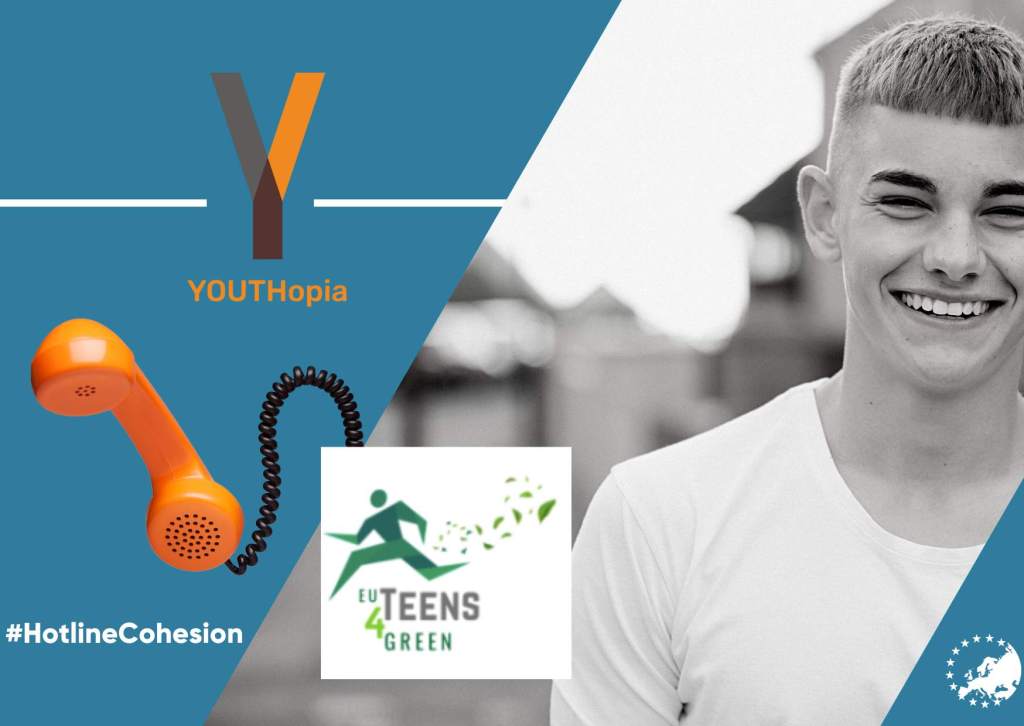 Share this!
Share this!Local, but European. Practical, but inspiring. #HotlineCohesion brings you the most interesting youth opportunities linked to EU Cohesion Policy.
HOW TO MITIGATE THE SOCIAL IMPACT OF THE TRANSITION
It is no secret that the very needed green transition will lead to profound changes in the labour market – ‘new jobs will be created, while some jobs will be replaced and other refined’. Ensuring a fair and just transition becomes therefore a crucial point of action for regions and its youth.
In the Zasavska region in Western Slovenia for instance, since 2013 almost 5.000 jobs have been lost and the GDP has been dropping to 53% of the Slovenian average due to the closure of the Zasavaje coal mine and the region’s coal-fuelled power plant. Yet, studies show that the adoption of clean energy technologies in more than half of the EU coal regions can counter this effect through the creation of around 460.000 new jobs by 2050. The need to manage this change and develop appropriate supportive actions (as fostering the s.c. green skills20) to fully exploit the employment potential of the transition is one of the greatest responsibilities of the EU and its regions.
In the coming years, the Cohesion policy will support regions in their transition paths at several levels:
Actions needed to mitigate the impact of the transition on the society (as labour market interventions and reskilling of the workforce) will be supported under Policy Objective 4 ‘A more social and inclusive Europe’. In addition, financial support from the Just Transition Fund will be delivered to regions in the Just Transition Plans to alleviate the social, economic, and environmental impacts of the transition.
HOW DOES YOUTH GET INVOLVED?
Why is it essential to include young people in the Just Transition process?
Enabling young people to have a say in their future, be designers of their own projects and therefore become leaders and future leaders in their own communities are building blocks for achieving a fairer and more equal society. Young people are utterly concerned about the environment and they can be agents of change.
The EUTeens4Green project is a call to action for teens to take ownership in their communities and contribute to a fair and just green transition in the areas most in need to phase out coal and transitioning to forms of less polluting and renewable energies.
Through mini-grants provided directly to groups of young people, the project is designed to empower the next generation to become actors of change in their regions and help to reduce socio-economic disparities. By focusing on regions identified in the preliminary analysis of the Territorial Just Transition Plans and most affected by the low-carbon transition, the project has the potential to alleviate inequalities between regions and create a more equitable future for all.
THE STAKES.
The criteria to run a EUTeeens4Green project are:
- Take place in a Just Transition region
- Be run by young people aged 15-24
- Request a max. refunding of €10.000
- Last maximum of 12 months
- Must engage social groups negatively affected by the transition to a green economy
- Ensure diversity & inclusion and good environmental performance
Projects to be funded in the frame of EUTeens4Green may cover activities like the following (non-exhaustive list):
- Awareness-raising/communication activities
- Capacity-building actions (education, training, mentoring, events)
- Campaigning and advocacy activities
- Participatory processes aimed to engage with different groups of people
- Innovative solutions or pilots for testing innovative solutions
- Exchange of good practices
- Research
- Other activities in line with the scope of the action
Applications for the first cohort closed on the 9th of January and we are looking forward to knowing more about the successful applicants and their experience!!
Check out the page to find out too and to keep yourself posted when a new call is open!
See you next week at #HotlineCohesion!

The Youthopia Project is co-funded by the Directorate General for Regional and Urban policy (DG REGIO) of the European Commission.
